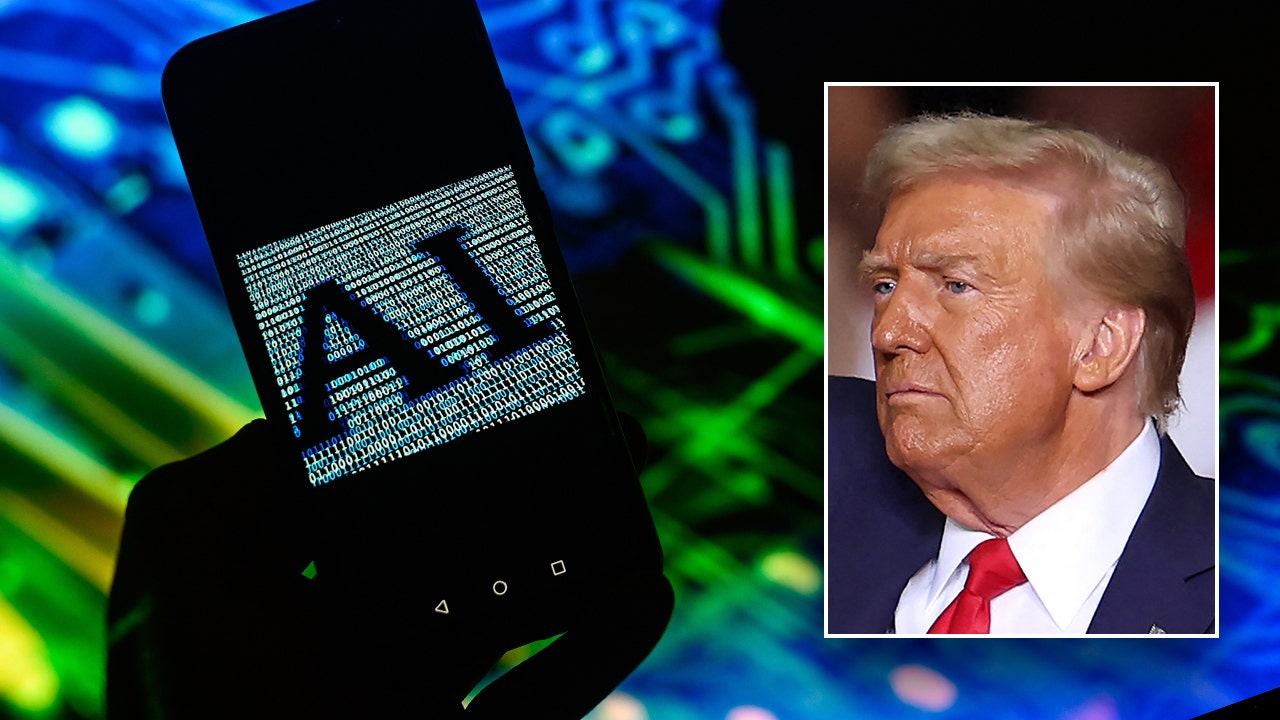As we stand at the precipice of a new technological era, artificial intelligence (AI) is set to revolutionize industries across the globe. With the United States undergoing significant political shifts, particularly under the leadership of former President Donald Trump, the implications of AI for the job market become increasingly critical. This article delves into how Trump’s AI initiatives may shape employment opportunities and outlines strategies for workers to adapt to the impending changes.
The AI Landscape Under Trump’s Leadership
The intersection of politics and technology has never been more pronounced. Trump’s administration had a distinct approach to AI, emphasizing innovation, national security, and economic growth. His policies promoted the idea that the U.S. should lead the world in AI development, which has far-reaching implications for various sectors, including healthcare, manufacturing, and finance.
One of the most significant initiatives was the establishment of the American AI Initiative in early 2019. This framework aimed to prioritize federal funding for AI research, streamline regulations, and foster collaboration between government, academia, and industry. The initiative illustrated a clear intention to position the U.S. as a dominant player in the AI space, which could lead to job creation in tech-driven fields.
Impacts on Various Sectors
As AI technologies continue to evolve, their impact is felt across numerous industries:
- Healthcare: AI can enhance patient care through predictive analytics and personalized treatment plans. This shift may require healthcare professionals to develop new skills to work alongside AI systems effectively.
- Manufacturing: Automation powered by AI stands to increase efficiency and reduce costs. However, this trend may displace traditional manufacturing jobs, necessitating a workforce skilled in robotics and AI management.
- Finance: The finance sector is increasingly leveraging AI for fraud detection, customer service, and investment analysis. Employees in this field may need to adapt to new tools and processes to remain relevant.
While some jobs may be threatened by these advancements, the AI revolution also presents opportunities for new roles that focus on oversight, maintenance, and ethical considerations of AI technologies.
Preparing for Change: Skills for the Future
To navigate the future landscape shaped by Trump’s AI initiatives, workers must proactively cultivate skills that align with the demands of an AI-driven economy. Here are several strategies to ensure job resilience:
- Upskill and Reskill: Continuous learning is crucial. Workers should seek training in AI-related fields, including data analysis, machine learning, and programming. Online platforms such as Coursera, edX, and Udacity offer accessible courses.
- Embrace Lifelong Learning: The pace of technological change means that today’s skills may become obsolete tomorrow. Developing a habit of lifelong learning can help workers stay ahead of the curve.
- Focus on Soft Skills: As AI takes over routine tasks, soft skills such as creativity, empathy, problem-solving, and critical thinking will become increasingly valuable. Workers should hone these abilities to differentiate themselves in the job market.
- Networking: Building professional relationships can lead to new opportunities and insights. Engaging with industry peers through conferences, workshops, and online forums can provide a competitive edge.
The Role of Government and Policy
The government’s role in shaping the future of work amidst the AI revolution is paramount. Trump’s policies regarding AI could influence funding for education and workforce development programs aimed at equipping workers with the necessary skills to thrive in a changing job landscape. Such initiatives may include:
- Increased Funding for STEM Education: Encouraging students to pursue careers in science, technology, engineering, and mathematics can create a more skilled workforce capable of navigating an AI-driven future.
- Support for Workers Displaced by Automation: Implementing safety nets and retraining programs for those whose jobs are at risk can help mitigate the negative effects of technological disruption.
- Promoting Ethical AI Development: Establishing regulations that encourage the ethical use of AI, ensuring transparency and accountability, will be crucial in maintaining public trust and worker rights.
Looking Ahead: The Future Job Market
As we look to the future, the job market will undoubtedly transform under the influence of AI technologies and political leadership. While some roles may disappear, many new ones will emerge, leading to a dynamic and evolving employment landscape. Workers must be adaptable and ready to embrace change, leveraging their skills and experiences to stay relevant.
Moreover, the collaboration between government, industry, and educational institutions will be essential in shaping a workforce prepared for the challenges and opportunities presented by AI. By investing in education and fostering an environment that embraces innovation, we can navigate the complexities of this revolution.
Conclusion: Embracing the AI Revolution
In conclusion, the question of whether your job can withstand Trump’s AI revolution hinges on preparation and adaptability. By recognizing the transformative power of AI and proactively developing skills needed for future roles, workers can position themselves for success. The AI landscape is ripe with potential, and those willing to learn and grow will find themselves at the forefront of this technological advancement. As we move forward, it’s vital to approach these changes with optimism and a readiness to embrace the future of work.
See more Business Focus Insider Team

